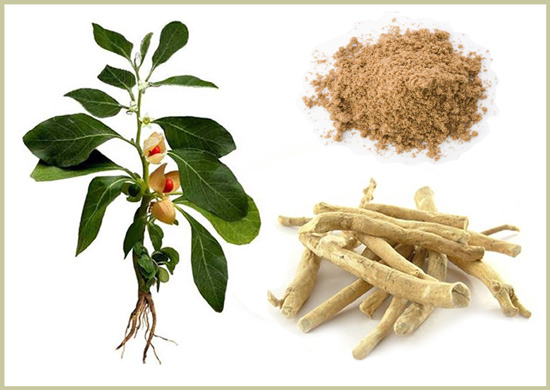Ashwagandha, also known as winter cherry and Indian ginseng, is an evergreen shrub in the Solanaceae or nightshade family.
Ashwagandha grows in India, the Middle East, and in parts of Africa. The herb’s scientific name is Withania somnifera.
The herb is an important part of India’s Ayurveda traditional medicine system, where it boasts written records extending back thousands of year.
In Ayurveda medicine, ashwagandha was (and still is) used to treat a wide range of conditions, including rheumatism and insomnia.
Ashwagandha is part of a class of plants called adaptogens known for their health benefits when ingested as teas, powders, tinctures and supplements, or in their raw forms.
The beneficial compounds in ashwagandha include alkaloids, flavonoids and steroidal lactones; however, compounds known as withanolides are thought to be the most potent—and are currently the most studied.
There are two main withanolides, withaferin A and withanolide D. All parts of the Withania somnifera plant contain withanolides; however, the highest concentrations are found in the roots. This explains why most ashwagandha products utilize “ashwagandha root extract.”
In recent decades, the millennia-old uses of ashwagandha have started to be re-discovered in western countries. In the U.S. it has become a popular nutritional supplement for modulating stress, lowering anxiety, and improving energy levels. Recent studies have also shown that ashwagandha appears to provide benefits for brain function and memory.
While a long historical use and hundreds of studies prove the medicinal and nutritional benefits of ashwagandha, according to the U.S. Food & Drug Administration larger-scale clinical trials are still needed to get its stamp of approval.
Since ashwagandha is not a patented product owned by a pharmaceutical company, these kind of expensive trials are not likely to happen in the near future. Still, the evidence provided by numerous smaller studies continues to mount.
The primary benefits of ashwagandha are interrelated. For example, less stress equals lower cortisol levels; lower cortisol levels equals better blood sugar control; and better blood sugar control helps maintain energy levels.
Two recent studies highlight these interrelated benefits:
–
Australian ashwagandha study
–
A study published in September 2023 found supplementation with ashwagandha root extract was able to “significantly reduce symptoms of fatigue” when compared to the placebo group.
The study, conducted at Murdoch University in Perth, Western Australia, was designed to assess the herb’s benefits on overweight men and women.
The researchers reported that ashwagandha supplementing also led to “significant increase in the blood concentrations of free testosterone for the male participants.”
The 12-week, randomized, double-blind, placebo-controlled trial included 111 participants. All participants, aged between 40 and 75, had self-reported that that they experienced stress and fatigue. The participants were randomly assigned to receive either ashwagandha root extract or a placebo for a period of 12 weeks.
The ashwagandha root extract administered was 200 mg twice daily. The product was standardized to 1.5% total withanolides. Study results were published in the Journal of Psychopharmacology.
–
Italian ashwagandha study
–
A systematic review conducted in Italy found a significant association between short-term ashwagandha supplement intakes and reduced cortisol levels in individuals suffering from stress.
The researchers gleaned details from published studies in PudMed, EMBASE, Google Scholar, and Scopus.
In their findings, based on the results of seven qualified ashwagandha studies, researchers reported “significant cortisol reductions between 11% and 32.83%” in study subjects who were treated with ashwagandha.
Hypothesising the mechanisms of action, the researchers commented on ashwagandha’s active compounds:
“Withaferin A might affect circulating cortisol levels presumably owing to a direct interaction with glucocorticoid receptors in the brain, but other Withania somnifera bioactive substances could also modulate the levels of this hormone.”
Details of the study were published in Nutrients in December 2023.
Ashwagandha can be found in the following Optimal Health Systems products:
• Optimal Cort-Adrena
• Stress/Anxiety Relief Pak
• Tru-Energy Pak
– – –
Sources: Journal of Psychopharmacology, Nutrients, Wikipedia (Withania somnifera), Wikipedia (Ayurveda).


